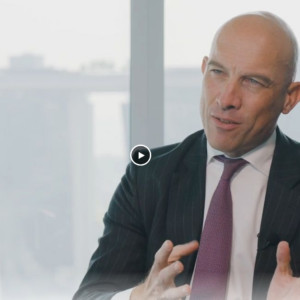Private View Blog: A long history of haste and hubris

Those investors caught up in the collapse of FTX are treading a well worn path, writes Malik Sarwar
As UK unemployment nudged 3m in a country ravaged by the Miners’ Strike of the mid-1980s, one of the hit songs ringing out from the jukeboxes of backstreet pubs was a catchy number by Glaswegian singer-songwriter Jim Diamond: “I should have known better.”
Since those heady days, the best minds, at the helm of our economies and investment firms have been sucked in many times by stories of an apparent genius, able to deliver impressive returns in volatile markets. That lyrical refrain has stayed with us over the years, recalling poor operational procedures, even poorer leadership and an unenviable track record demonstrated by institutional investors.
Their list of poorly selected portfolio investments is too long to recall here, but a few recent highlights include: Bernard Madoff’s Ponzi scheme, Arif Naqvi’s Abraaj Group and former star stockpicker Neil Woodford’s eponymous funds suite.
This time around, the rollcall of those who “should have known better” when hearing the tale of a seemingly invincible, tousle-haired, 30-year-old wunderkind, beggars belief. It includes the world’s largest fund manager BlackRock, Singapore’s state investment fund Temasek and the pioneering Ontario Teachers’ Pension Fund. Even US glamour couple Tom Brady and Giselle Bundchen – now reportedly divorced – got caught-up in the euphoria.
Then on 11/11, FTX declared Chapter 11.
Mindsets and motivation
It is easy to point the finger of blame in hindsight, so rather than look at the personalities who signed off the investments in FTX, brainchild of multi-million dollar Democratic Party donor Sam Bankman-Fried, it makes more sense to analyse the organisational mindsets and structures facilitating these – and previous losses – to be triggered.
Three traits have allowed these debacles to recur: greed, hubris and ‘fear of missing out’ (FOMO). With billions sloshing around the globe – not directed to those at the bottom of the pyramid, ESG or Ukraine – new and exciting is always tempting. It just takes one major investor to gush over a new concept or personality and others come running. Greed typically prevented them from looking too closely at any red flags.
Managing billions globally means all-powerful institutional investors, often plagued by hubris, feel they can do no wrong. Considering themselves invincible gods, with a small 'g', they can put aside proper due diligence. When staff members occasionally speak up, there can be a tendency to ignore them.
With crypto ‘assets’ rising from $800bn to $3tn over two years, otherwise smart minds swept away by the FOMO phenomenon can become numb or dumb, following the confirmation bias of other smart minds. For genuine learning to commence, “investors” need to look in the mirror and do three things asap.
Necessary steps
The first is a lesson from an earlier decade, when Mr Madoff was turned down twice for investing by a New York fund of hedge funds because he could not explain his ‘black box’ delivering its steady 1 per cent monthly return. While the fraudster claimed the fact that top global names had invested $65bn was proof of his authenticity, the CIO refused to play ball, believing the black box could soon produce a black hole.
Secondly, financial firms must re-examine often superficial due diligence procedures. Rather than pursuing short termism, a well-resourced due diligence department must be able to respond to red flags, which have been waved – and ignored – in most major recent scandals.
This leads us to the third and most important step. There is a crying need for moral imagination as well as leadership among the titans of the broader financial services world. So far, few leaders have shown the courage to step out, claim responsibility and announce the need for collective soul-searching.
My own experience as a banker in both Wall Street and Asia brings back recent memories of shallow values, focused on compensation, titles and only narrowly on shareholders. Unless these drivers are addressed, these debacles will happen again and again. The corporate culture, fed down from the top, must embrace transparency and integrity. When leaders create an environment of no-fear, even junior staff can challenge their seniors, while following a rigorous due diligence process.
Will we ever learn from history? Sadly, legendary crooner Jim Diamond is no longer with us. But rather than humming his “I should have known better” chorus, I would rather our financial and political leaders were singing along to his other great hit: “I won’t let you down.”
Malik Sarwar is managing director of wealth management, Global Leader Group, USA



